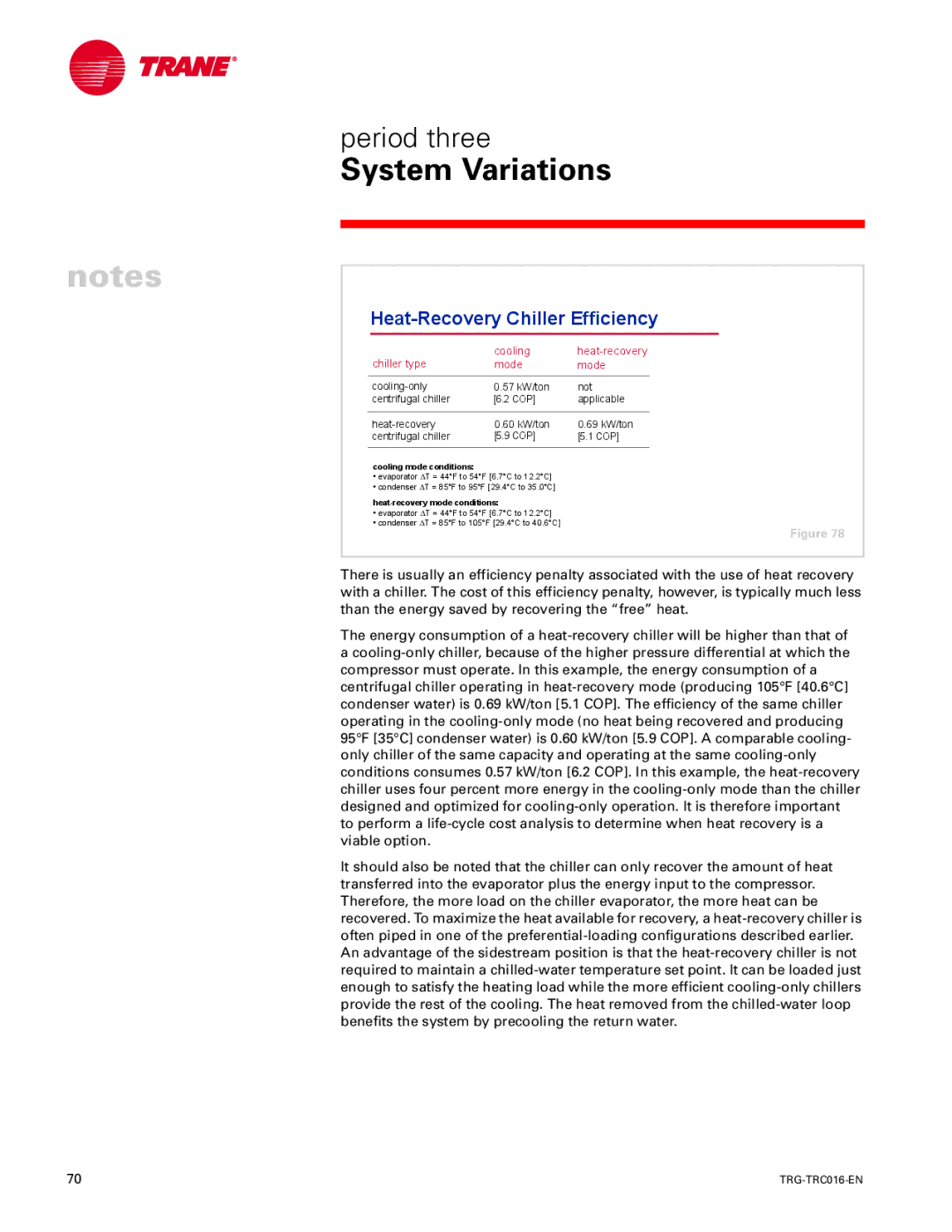
period three
System Variations
notes
Heat-Recovery Chiller Efficiency
chiller type | cooling | heat-recovery |
mode | mode |
| | |
cooling-only | 0.57 kW/ton | not |
centrifugal chiller | [6.2 COP] | applicable |
| | |
heat-recovery | 0.60 kW/ton | 0.69 kW/ton |
centrifugal chiller | [5.9 COP] | [5.1 COP] |
| | |
cooling mode conditions:
•evaporator ∆T = 44°F to 54°F [6.7°C to 12.2°C]
•condenser ∆T = 85°F to 95°F [29.4°C to 35.0°C]
heat-recovery mode conditions:
•evaporator ∆T = 44°F to 54°F [6.7°C to 12.2°C]
•condenser ∆T = 85°F to 105°F [29.4°C to 40.6°C]
Figure 78
There is usually an efficiency penalty associated with the use of heat recovery with a chiller. The cost of this efficiency penalty, however, is typically much less than the energy saved by recovering the “free” heat.
The energy consumption of a heat-recovery chiller will be higher than that of a cooling-only chiller, because of the higher pressure differential at which the compressor must operate. In this example, the energy consumption of a centrifugal chiller operating in heat-recovery mode (producing 105°F [40.6°C] condenser water) is 0.69 kW/ton [5.1 COP]. The efficiency of the same chiller operating in the cooling-only mode (no heat being recovered and producing
95°F [35°C] condenser water) is 0.60 kW/ton [5.9 COP]. A comparable cooling- only chiller of the same capacity and operating at the same cooling-only conditions consumes 0.57 kW/ton [6.2 COP]. In this example, the heat-recovery chiller uses four percent more energy in the cooling-only mode than the chiller designed and optimized for cooling-only operation. It is therefore important to perform a life-cycle cost analysis to determine when heat recovery is a viable option.
It should also be noted that the chiller can only recover the amount of heat transferred into the evaporator plus the energy input to the compressor. Therefore, the more load on the chiller evaporator, the more heat can be recovered. To maximize the heat available for recovery, a heat-recovery chiller is often piped in one of the preferential-loading configurations described earlier. An advantage of the sidestream position is that the heat-recovery chiller is not required to maintain a chilled-water temperature set point. It can be loaded just enough to satisfy the heating load while the more efficient cooling-only chillers provide the rest of the cooling. The heat removed from the chilled-water loop benefits the system by precooling the return water.

